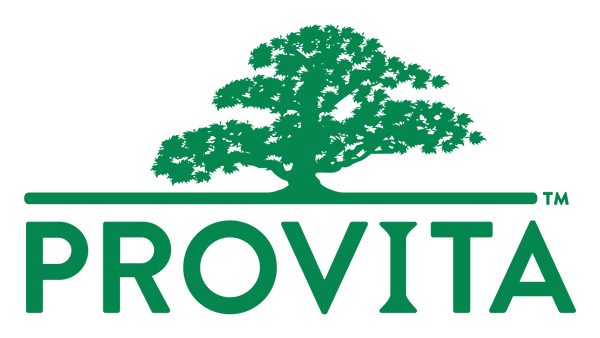When it comes to minerals, zinc and copper are true partners. Each plays a critical role in human health, yet their relationship is a delicate one. Deficiencies in both are surprisingly common, while true excess is rare. However, high intake of zinc can directly interfere with copper absorption, increasing the risk of deficiency. Conversely, too much copper relative to zinc may suppress immune function, as the two minerals compete at several enzymatic and cellular sites. This is why maintaining a proper balance is essential for long-term health.
The Role of Zinc in the Body
Zinc is one of the most important trace elements for human health. It participates in over 300 enzymatic reactions that influence growth, immunity, neurological function, and tissue repair.1
- Immune health: Zinc is a gatekeeper for immune defense. Even mild deficiency increases susceptibility to infections, and some studies demonstrate that zinc supplementation can shorten the duration of colds.2,3
- Hormones and fertility: Zinc is required for reproductive health, sperm production, and ovulation. Low zinc status has been linked to impaired fertility.4
- Skin and wound healing: Zinc contributes to skin integrity, connective tissue strength, and supports a healthy gastrointestinal lining.5
In short, without zinc, many systems of the body struggle to perform at their best.
The Role of Copper in the Body
Copper may not be as widely discussed as zinc, but it is no less critical. This mineral serves as a cofactor for multiple enzymes that influence cardiovascular, neurological, and structural health.
- Iron metabolism and red blood cells: Copper helps the body absorb and utilize iron, which is essential for preventing anemia.6
- Antioxidant defense: As part of superoxide dismutase, copper helps neutralize free radicals and reduce oxidative stress.6
- Connective tissue strength: Copper is needed for cross-linking collagen and elastin, which keeps blood vessels, skin, and bones strong.7
In short, without adequate copper, the body’s ability to generate energy, build strong tissues, and defend against oxidative stress is significantly compromised.
Why Balance Is Key
Zinc and copper are companion minerals that work together to support immunity, tissue repair, antioxidant defense, and neurological function. While many people focus on zinc for its immune, skin, or hormonal benefits, they often overlook the need to maintain proper copper levels, especially with long-term supplementation. While many people focus on zinc supplementation for immunity or skin health, they often overlook the need to pair it with copper.
- Excess zinc can impair copper absorption, leading to deficiency.8
- Excess copper can lead to neural toxicity and suppress zinc’s critical functions.9
Within the body, many influences, from modern dietary patterns and environmental exposures to hormonal shifts, digestive challenges, and chronic illness, can disrupt the natural equilibrium between zinc and copper. Left unchecked, such imbalances may gradually diminish energy, resilience, and overall well-being.
That’s why researchers emphasize the importance of maintaining a balanced ratio. Evidence suggests that an 8:1 zinc-to-copper ratio is ideal for long-term supplementation, offering enough zinc to support immunity and tissue repair, without risking copper depletion.10

Introducing Provita’s Copper Zinc Balance™
Provita’s Copper Zinc Balance™ was designed with this delicate equilibrium in mind
The formula includes:
- 16 mg Zinc (chelated with picolinate): a highly absorbable, research-backed form.
- 2 mg Copper (chelated with bisglycinate): gentle, well-tolerated, and bioavailable.
- 200 mcg L-5-MTHF (active folate): to support methylation, neurotransmitter balance, and red blood cell formation.
This vegan, non-GMO, clean-label formula offers daily support for immune resilience, energy metabolism, and tissue health without tipping your mineral status out of balance.
Here’s how this thoughtful blend supports your health:
- Supports immune function and antioxidant defense at the cellular level.
- Promotes healthy connective tissue, including skin, joints, and blood vessels.
- Maintains zinc levels without risking copper deficiency.
- Enhances energy metabolism and red blood cell production.
The Bottom Line
In today’s world, imbalances are increasingly common. Many people take zinc to support their immunity, hormones, or skin, but don’t realize that copper must come along for the ride. This creates a silent problem: copper deficiency symptoms often appear gradually and are non-specific. Symptoms such as fatigue, weakness, difficulty with memory, and pale skin may be overlooked or misattributed.
By focusing on balance, you not only reduce the risk of deficiency but also unlock the synergistic benefits of these two minerals working together. Zinc and copper are not rivals, they are partners. But like all partnerships, harmony is key.
That’s why Provita created Copper Zinc Balance™: a carefully formulated, research-backed way to get the benefits of both minerals in the precise ratio your body needs. It’s more than just supplementation, it’s support for your long-term health.
Note: Always consult a healthcare provider before beginning any new supplement regimen, especially if you have a medical condition or take medications.
References
- Prasad AS. Zinc in human health: effect of zinc on immune cells. Mol Med. 2008;14(5-6):353-357. doi:10.2119/2008-00033.
- Wessels I, Maywald M, Rink L. Zinc as a gatekeeper of immune function. Nutrients. 2017;9(12):1286. doi:10.3390/nu9121286
- Wang MX, Win SS, Pang J. Zinc Supplementation Reduces Common Cold Duration among Healthy Adults: A Systematic Review of Randomized Controlled Trials with Micronutrients Supplementation. Am J Trop Med Hyg. 2020;103(1):86-99. doi:10.4269/ajtmh.19-0718
- Beigi Harchegani A, Dahan H, Tahmasbpour E, Bakhtiari Kaboutaraki H, Shahriary A. Effects of zinc deficiency on impaired spermatogenesis and male infertility: the role of oxidative stress, inflammation and apoptosis. Hum Fertil (Camb). 2020;23(1):5-16. doi:10.1080/14647273.2018.1494390
- O’Dell BL. Role of zinc in plasma membrane function. J Nutr. 2000;130(5 Suppl):1432S-1436S. doi:10.1093/jn/130.5.1432S
- Spinazzi M, Sghirlanzoni A, Salviati L, Angelini C. Impaired copper and iron metabolism in blood cells and muscles of patients affected by copper deficiency myeloneuropathy. Neuropathol Appl Neurobiol. 2014;40(7):888-898. doi:10.1111/nan.12111
- Zhang W, Song Z, Tian Y, et al. Copper homeostasis and Cuprotosis: Exploring novel therapeutic strategies for connective tissue diseases. Int Immunopharmacol. 2025;145:113698. doi:10.1016/j.intimp.2024.113698
- Duncan A, Yacoubian C, Watson N, Morrison I. The risk of copper deficiency in patients prescribed zinc supplements. J Clin Pathol. 2015;68(9):723-725. doi:10.1136/jclinpath-2014-202837
- Brewer GJ. Copper excess, zinc deficiency, and cognition loss in Alzheimer's disease. Biofactors. 2012;38(2):107-113. doi:10.1002/biof.1005
- Watts D. HTMA MIneral Ratios [Internet]. 1st ed. 2010 [cited 15 November 2016]. Available from: http://t.traceelements.com/Docs/newsletternov-dec2010.pdf







